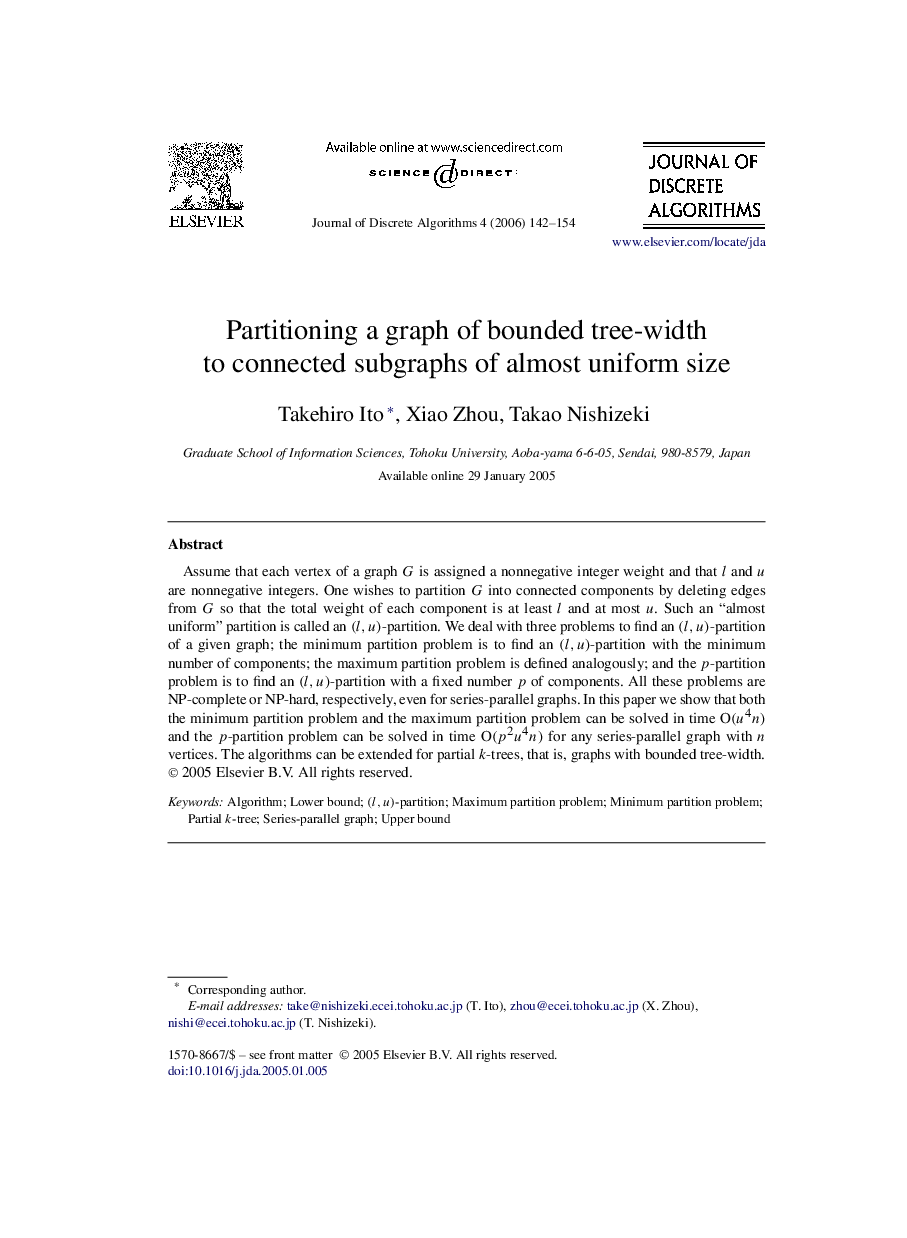| Article ID | Journal | Published Year | Pages | File Type |
|---|---|---|---|---|
| 431383 | Journal of Discrete Algorithms | 2006 | 13 Pages |
Assume that each vertex of a graph G is assigned a nonnegative integer weight and that l and u are nonnegative integers. One wishes to partition G into connected components by deleting edges from G so that the total weight of each component is at least l and at most u . Such an “almost uniform” partition is called an (l,u)(l,u)-partition. We deal with three problems to find an (l,u)(l,u)-partition of a given graph; the minimum partition problem is to find an (l,u)(l,u)-partition with the minimum number of components; the maximum partition problem is defined analogously; and the p -partition problem is to find an (l,u)(l,u)-partition with a fixed number p of components. All these problems are NP-complete or NP-hard, respectively, even for series-parallel graphs. In this paper we show that both the minimum partition problem and the maximum partition problem can be solved in time O(u4n)O(u4n) and the p -partition problem can be solved in time O(p2u4n)O(p2u4n) for any series-parallel graph with n vertices. The algorithms can be extended for partial k-trees, that is, graphs with bounded tree-width.
